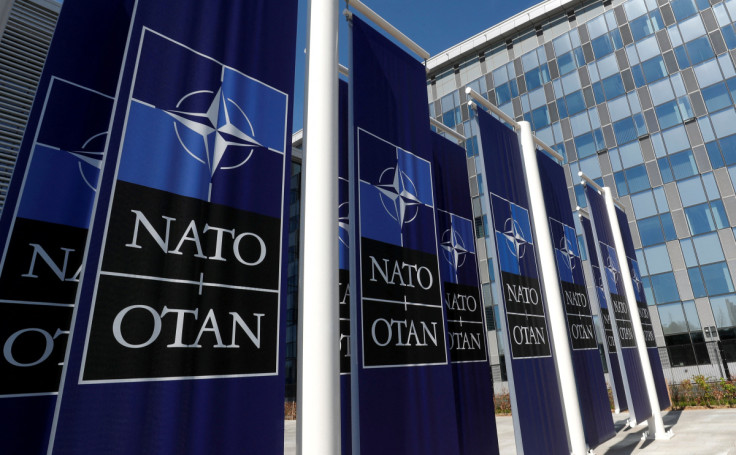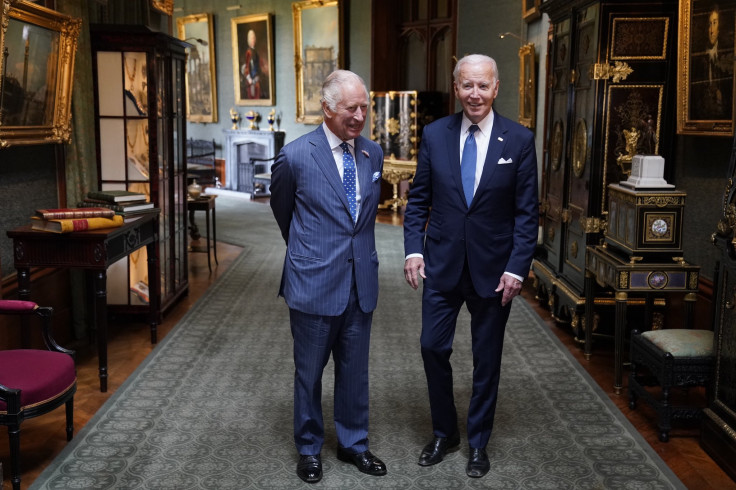Turkey agrees to back Sweden's NATO bid
Turkey's President Recep Tayyip Erdogan has agreed to support Sweden's bid to join Nato, the military alliance's chief Jens Stoltenberg says.

Turkey's President Recep Tayyip Erdogan has agreed to support Sweden's bid to join NATO, the military alliance's chief Jens Stoltenberg says.
During a briefing ahead of the 2023 NATO Summit, held in Vilnius, Erdogan said he would forward Sweden's bid to join NATO to the Turkish parliament for ratification.
These comments come as a surprise, as the Turkish President has previously blocked Sweden's attempts to join NATO, claiming that the Scandinavian country provided a safe haven for Kurdish migrants.
However, Sweden changed its terrorism laws earlier this year to make it a crime to be part of these groups.
As one of NATO's 31 members, Turkey has a veto over any new country joining the group.
The Swedish Prime Minister, Ulf Kristersson, appeared to welcome the apparent change of heart. He said: "I am very happy, it is a good day for Sweden."
Following the news, Joe Biden spoke with Mr. Erdogan while flying aboard Air Force One on Sunday.
During this conversation, The US president conveyed his desire to welcome Sweden into NATO as soon as possible, according to a readout from the White House.
In a statement, President Biden said: "I welcome the statement issued by Turkey, Sweden, and the NATO secretary general this evening, including the commitment by President Erdoğan to transmit the Accession Protocol for Sweden to Turkey's Grand National Assembly for swift ratification.
"I look forward to welcoming Prime Minister Kristersson and Sweden as our 32nd NATO Ally. And I thank Secretary-general Stoltenberg for his steadfast leadership."
Nato's director general Jens Stoltenberg hailed Turkey's agreement as a "historic step", but warned that a clear date could not be given for when Sweden officially joins.
Nonetheless, the agreement is a welcome boost for NATO leaders as they prepare to gather in Lithuania for a crucial summit that could shape the direction of the war in Ukraine and the future of the Western alliance.
The 31 allies hope to show Russia they have the resolve to support Ukraine militarily for the long term. But there remains disagreement over what to say about Ukraine's own ambitions for future membership.
Before the summit had even begun, President Zelensky demanded NATO members treat Ukraine with respect as he angrily denounced an "absurd" invitation to join the alliance with no time frame attached.
The Ukrainian president also expressed his disappointment with the "vague wording" of a draft agreement, which is set to be agreed by NATO leaders at a summit in Vilnius.
A draft text of the joint communication reads that NATO will "extend an invitation to Ukraine to join the alliance when allies agree and conditions are met".
The issue of how to acknowledge Ukraine's membership ambitions as it defends itself against Russian aggression has exposed divisions within NATO in weeks of intense negotiations, with the US and Germany wary of implying that Kyiv's membership is inevitable without conditions attached.
On the other side, mainly Eastern European members, with the backing of France and the UK, had called for the word "invitation" to be included in the statement and for an acknowledgment that it would be a political, not technical decision to invite Ukraine to join.
UK Prime Minister Rishi Sunak told reporters on Tuesday that "Ukraine's rightful place is in NATO". He added: "What's important at this summit is that commitment is reaffirmed and that there is demonstrable progress towards that goal and I think that's what you will see."
However, Biden recently described Kyiv's bid for NATO membership as "premature".
On Monday, Russian President Vladimir Putin's spokesman Dmitry Peskov warned that Ukraine's potential membership of NATO would have "negative consequences for the entire security architecture, which is half destroyed as it is in Europe".
Ukrainian membership would "represent an absolute danger, threat to our country, which will require a quite firm and clear reaction", Mr. Peskov said.

In the lead-up to the upcoming Summit, US President Joe Biden flew to the UK yesterday and met with Rishi Sunak in Downing Street.
The pair were said to be discussing the provision of cluster bombs for Ukraine.
Sunak played down any talk of a rift after some Western allies questioned the US supply of cluster munitions to Ukraine, and concern from rights groups about their dangers to civilians.
The prime minister's official spokesman told reporters afterward the issue was discussed, acknowledging that providing the weapons "was a difficult choice for the US".
Downing Street said the pair "agreed on the need to strengthen our alliance and maintain our support for Ukraine" as well as economic ties.
Also on the NATO agenda is Iran.
NATO allies said on Tuesday they were seriously concerned by Iran's "malicious activities" within the allied territory and called Tehran to stop its military support to Russia, including the supply of drones.
"We call upon Iran to cease its military support to Russia, in particular its transfer of Uncrewed Aerial Vehicles (UAVs) which have been used to attack critical infrastructure, causing widespread civilian casualties," the 31-member alliance said in a final declaration at the summit in Lithuania.
"We express our serious concern over Iran's malicious activities within Allied territory."
At this stage, it is unclear if and how Iran will respond to the ultimatum.
© Copyright IBTimes 2025. All rights reserved.






















